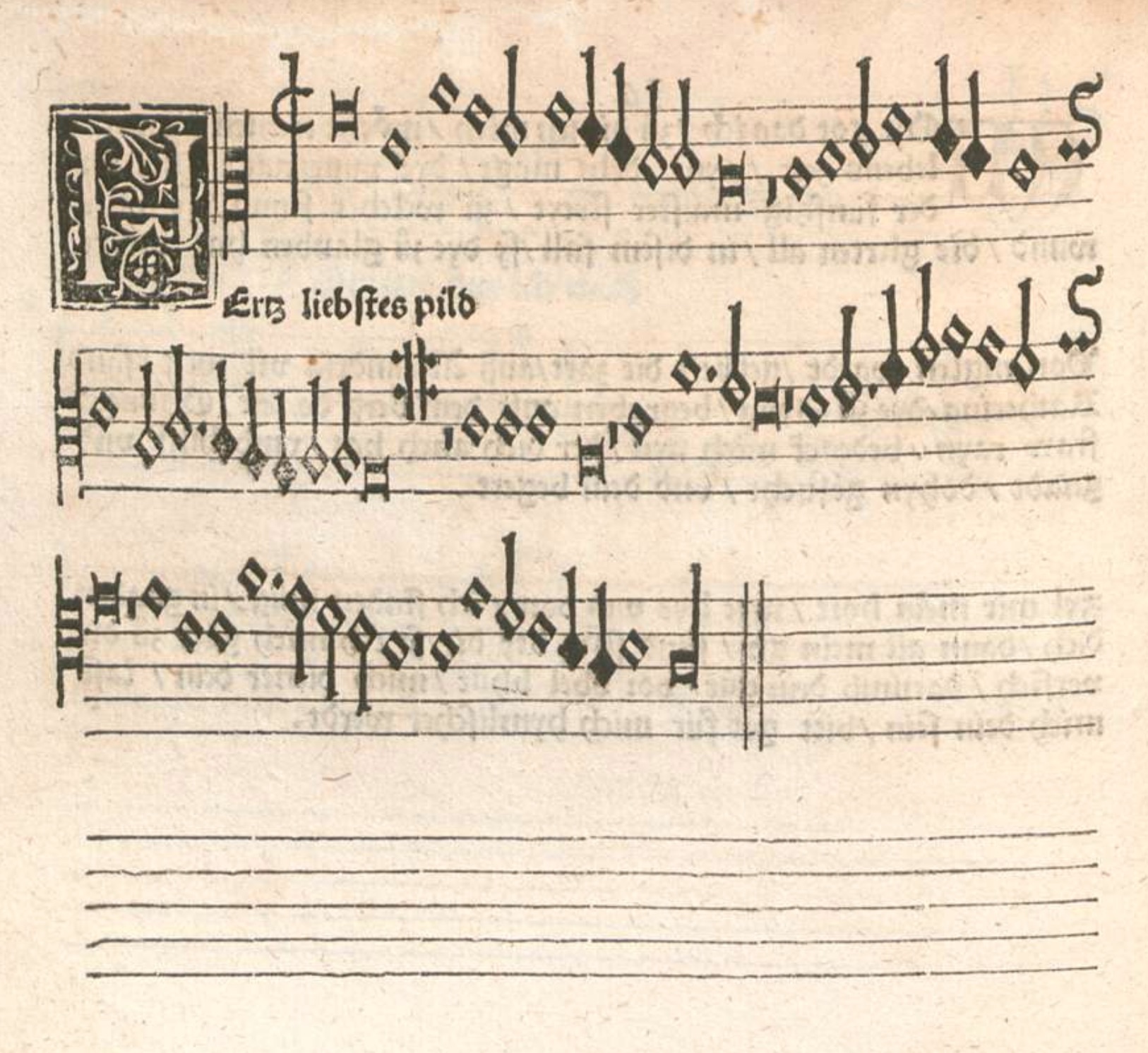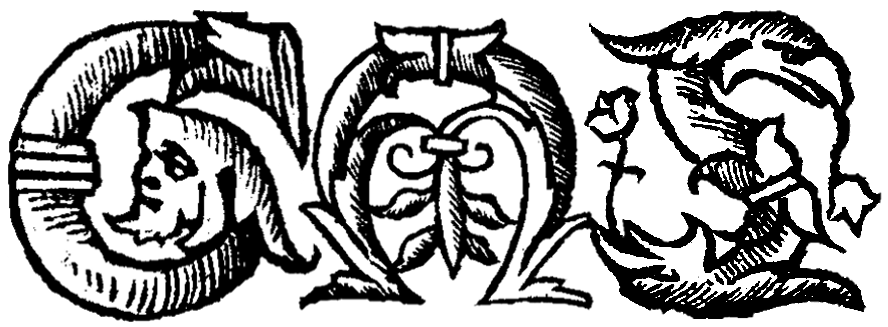Dearest sight of my heart | Hertz liebstes pyld

Bayerische Staatsbibliothek München 00082229 Rar.27 Stimme T f.40v [Public Domain]
Read the text (PDF)
Introduction to the Text
The first printed songbook with songs primarily in German was printed in July 1512 by the Augsburg printer Erhard Oeglin (ca.1470-1520). The songbook consists of four partbooks (it is the first German song collection to have four voices throughout) and contains 49 songs with a mixture of spiritual and secular content, 43 of which are in German and 6 in Latin. Oeglin was an innovative printer, credited as one of the first printers to print musical notation with movable type and as one of the first printers of Zeitungen (news-sheets, the forerunners of newspapers). Oeglin does not attribute any of the songs to particular composers but some of these songs do appear in other songbooks of this period where they are attributed to various composers active at the Imperial court, including Ludwig Senfl, Paul Hofhaimer, and Heinrich Isaac. These songs are collectively known as tenor lieder, as the melody is usually carried by the tenor line. This was the prototypical song type in Germany at the turn of the sixteenth century and enjoyed particular prominence at the court of the Emperor Maximilian.
Introduction to the Source
Digitized copies of these partbooks are available online from the Bayerische StaatsBibliothek in Munich: https:// stimmbuecher.digitale-sammlungen.de//view?id=bsb00082229.
Further Reading
Keyl, Stephen. “Tenorlied, Discantlied, Polyphonic lied: Voices and instruments in German secular polyphony of the Renaissance.” Early Music, vol. 20, no. 3, 1992, pp. 434–445.
Saunders, Steven. “Music in Early Modern Germany.” Early Modern German Literature 1350-1700, edited by Max Reinhart, Rochester: Camden House, 2007.
Dearest sight of my heart | Hertz liebstes pyld
Hertz liebstes pyld / beweys dich mild / mit deiner lieb unnd gunst gen mir / der gleich will ich / wann ich han dich / nach lust und wunsch meins hertzen gier / er welt für all / in disem tall / mit reichem schall / frey ich mich dein in erenn.
F Du solt hann / auff aller pann / von mir für ander all den preyß / in disem reich / lebt nit dein gleich mit allem thun zucht perd und weyß / da für dich acht / mein hertz das lacht / und stätz betracht / mein freüd mit dyr zů meren.
Zů dyr ich mich freüntlich versich / dein hertz mir gantz mir trewen sey / die weyl dir gar an alles gfar/ mich findest auch gerecht unnd frey / on all umb stendt von dir nit wendt / is in mein enndt / des thů ich dich geweren.
Dearest sight of my heart, show your gentleness through your love and favor for me; and I will do the same, for I have chosen you, following the want and wish of my heartfelt desire, above all others in this valley I delight in you with honor, and greatly rejoice.
F., wherever you go, you deserve my praise above all others; you have no equals in this realm, no matter their conduct, cultivation, bearing or air. So, take care, my heart rejoices and always aims to increase its joy with you.
I am graciously disposed to you, may your heart be faithfully mine, as you find me to be just and charitable, with no ill intentions, and straightforward. I will not leave you until my end: this I guarantee you.
